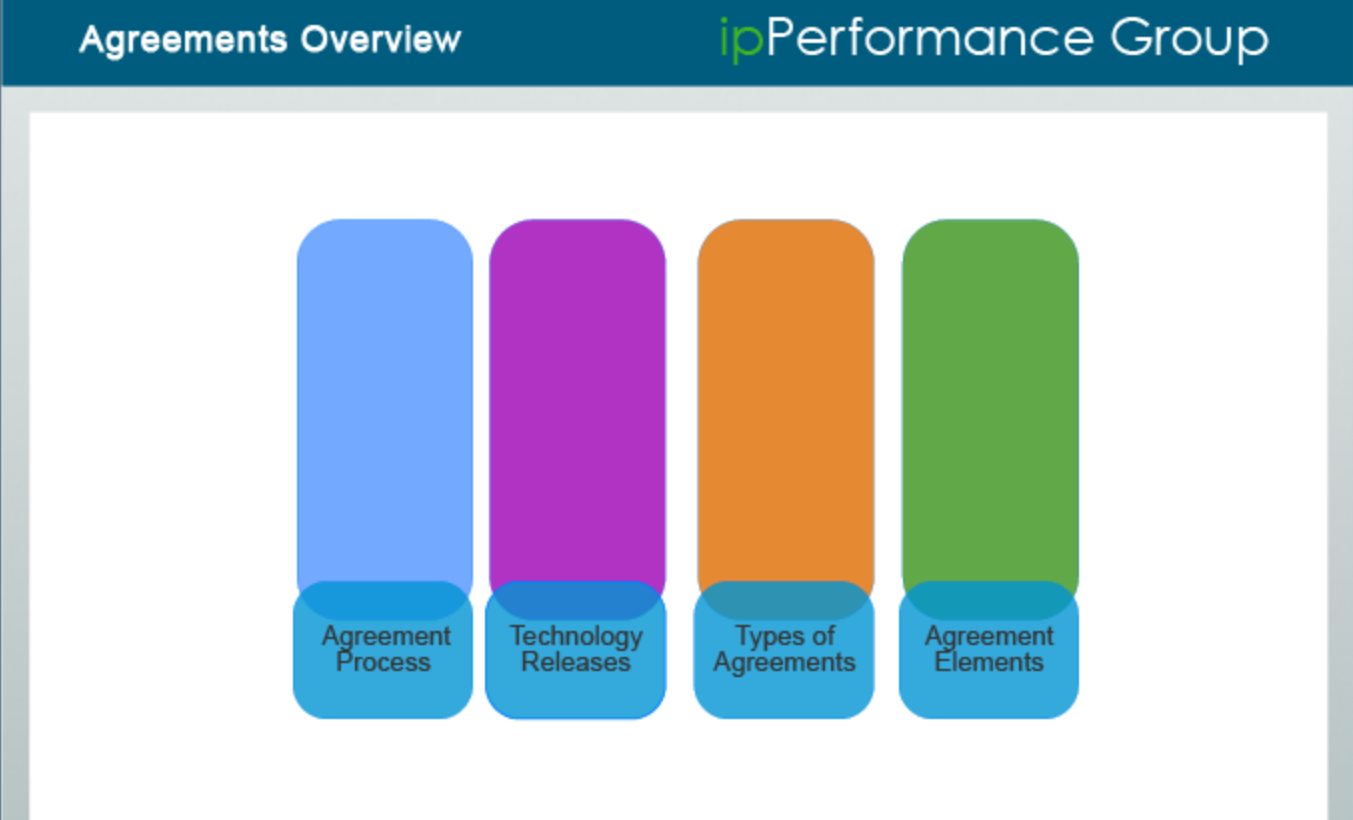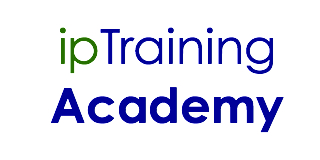Intellectual Property Extensions
Intellectual Property Extension courses are designed to expand employees’ understanding of IP assets, standard operating practices, and best practices policies. These courses target intellectual property stakeholders involved in transactions, new product development, and new business. Additionally, more advanced topics are covered for employees participating in or leading efforts to monetize, leverage, and transact intellectual property.
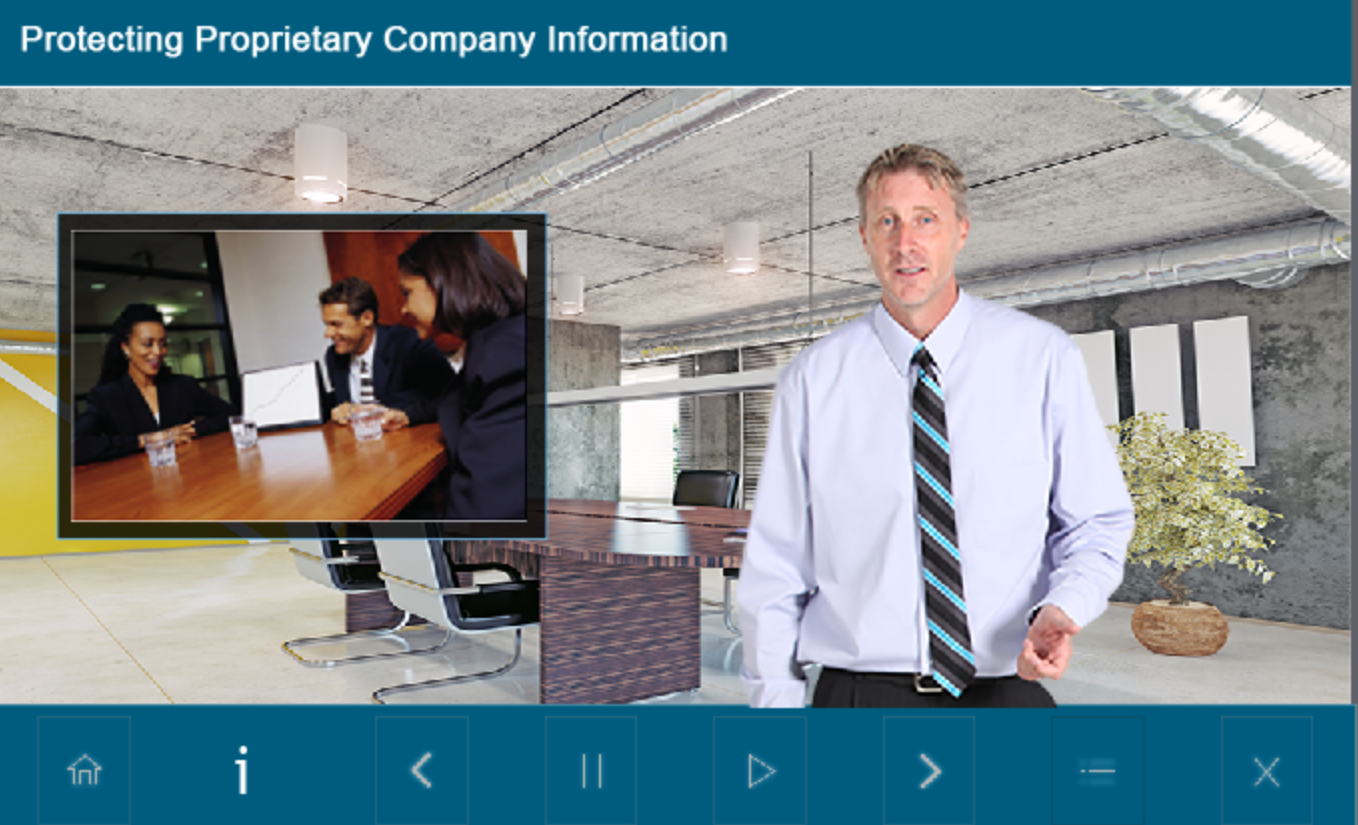
Agreements Primer: Intellectual Property in Commercial Relationships
Starting with the fundamentals of intellectual property and how it is protected in an organization, the Agreement Primer course identifies many contractual situations where IP rights and obligations typically arise. The general approach in such situations is discussed, along with responsibilities and resources. Employees will learn the standard structure of a typical technology-related agreement and the standard approval process. This course will clarify when an agreement is required and discuss the different types of technology and intellectual assets-related agreements.
Patenting Process: Invention Disclosure, Review, Prosecution, and Grant
The Patent Process course introduces the Research Development and Engineering (Developers/Engineers/Scientists) and manufacturing personnel to the business processes by which the company ensures its technical developments are appropriately protected and that IP-related risks are sufficiently managed (and that it has the freedom to operate its business). This course teaches the key elements of the Invention Disclosure Form and patent application that are required to gain internal patent application approvals and successfully secure a granted patent.
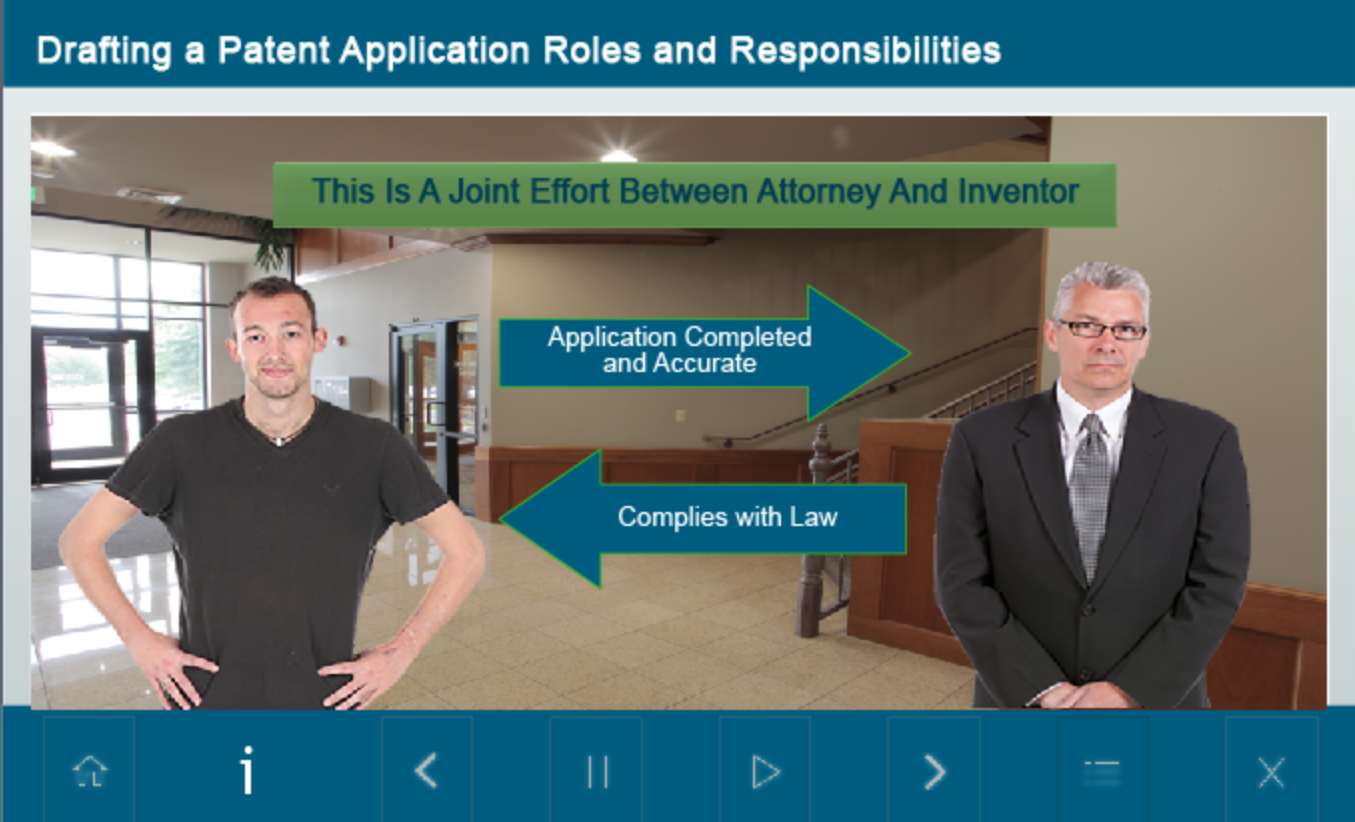
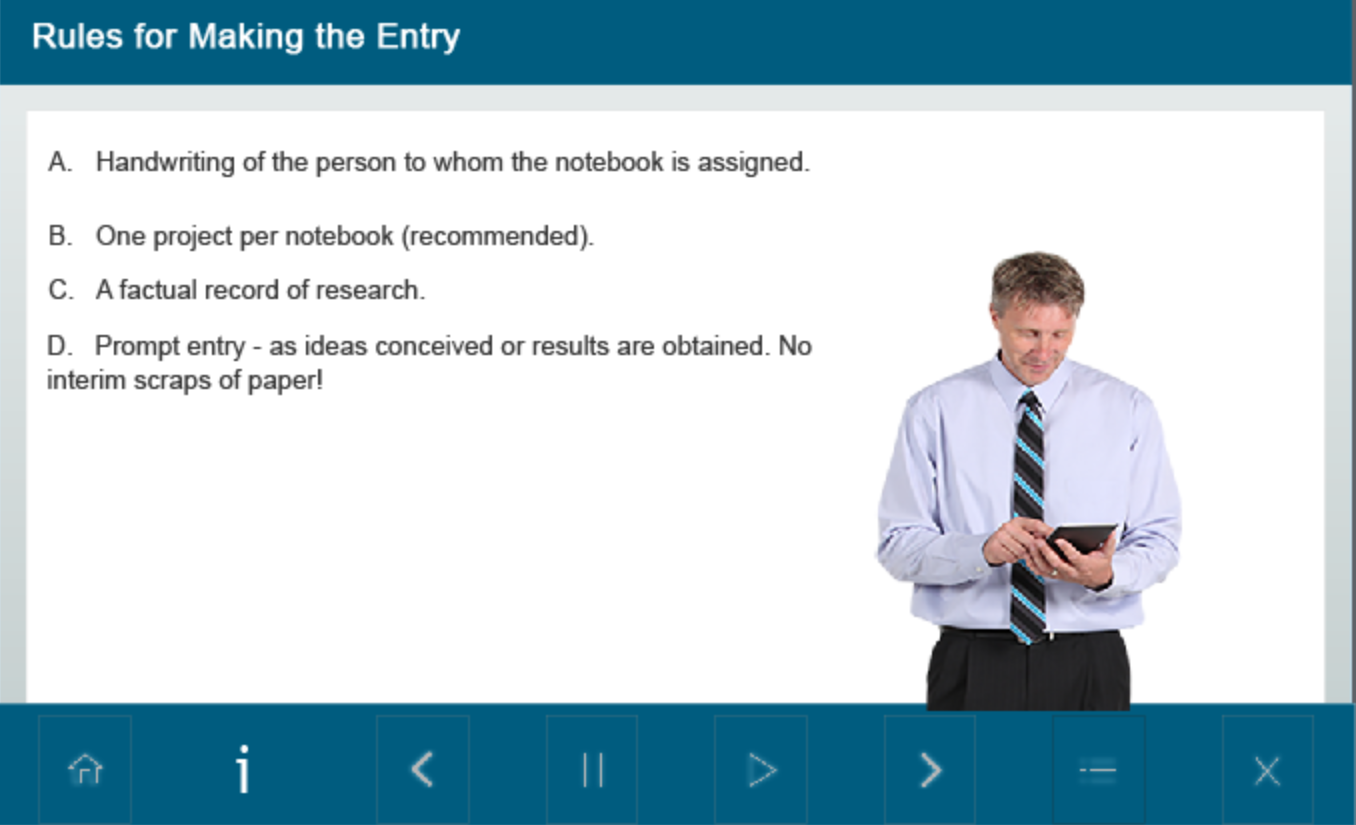
Research Notebook Procedures
A laboratory notebook is essential for recording development events and data supporting invention efforts that lead to patentable inventions. The recorded information can establish dates of conception and reduction to practice of technology and patent inventorship.
The Research Notebook course discusses the principles of using a research lab notebook. Learners will learn the purpose of a notebook, formatting, appropriate content, and responsibilities.
Protecting Proprietary Information
Proprietary information is highly valuable to the organization and therefore must be safeguarded during your discussions. It is common practice to establish an agreement before engaging in a discussion with a person outside the company, but sometimes there may be no need to share confidential and proprietary information.
This course explains the fundamental principles of handling and safeguarding proprietary information.
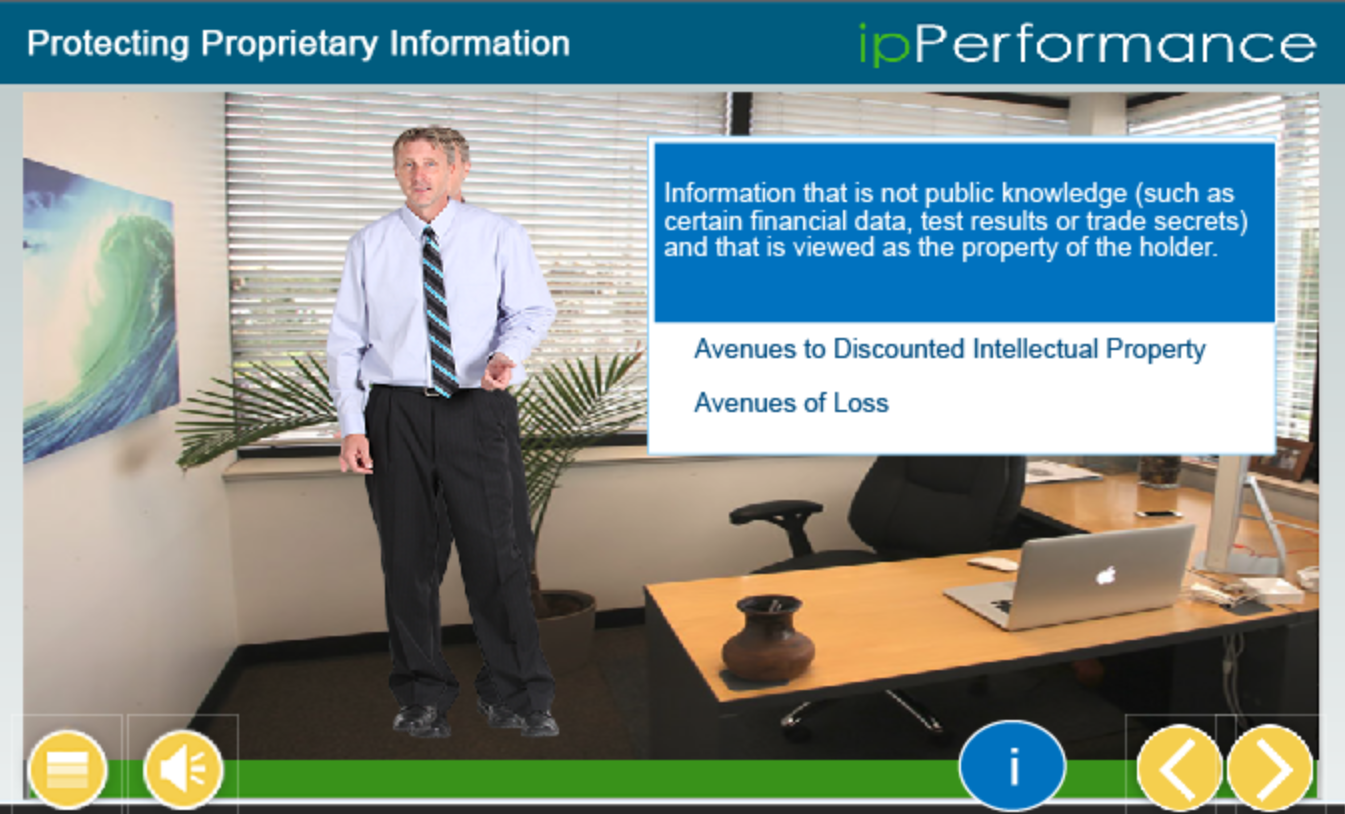
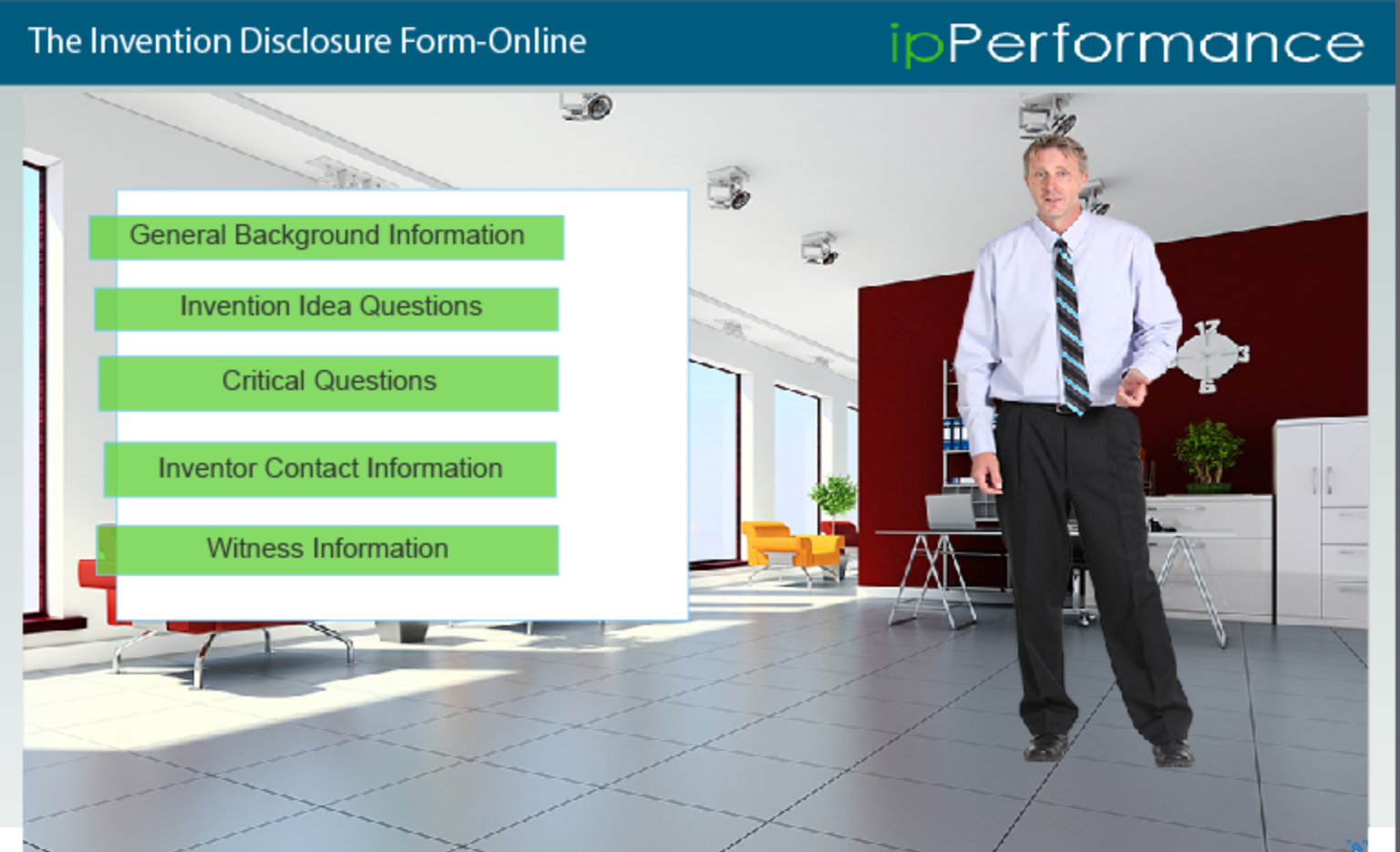
Completing an Invention Disclosure
An Invention Disclosure Form is a formal document that an inventor uses to describe their invention and the background of the invention, which they believe is patentable technology, designs, or processes. This form transmits pertinent technical and business information to the Patent Department. The Completing an Invention Disclosure course is a step-by-step overview of a standard Invention Disclosure Form and how to complete it. It covers the process of invention disclosure, terminology, and important concepts.
Invention, Inventorship, and Ownership
Invention and inventorship are foundational to innovation and patent procurement. While many developers participate in the invention process, they are not necessarily considered inventors by law. This Invention, Inventorship, and Ownership course aims to enable learners to describe the invention stages and discuss the legal inventorship requirements stipulating who can be identified as an inventor. Also, employees will learn invention ownership principles and joint development ownership.
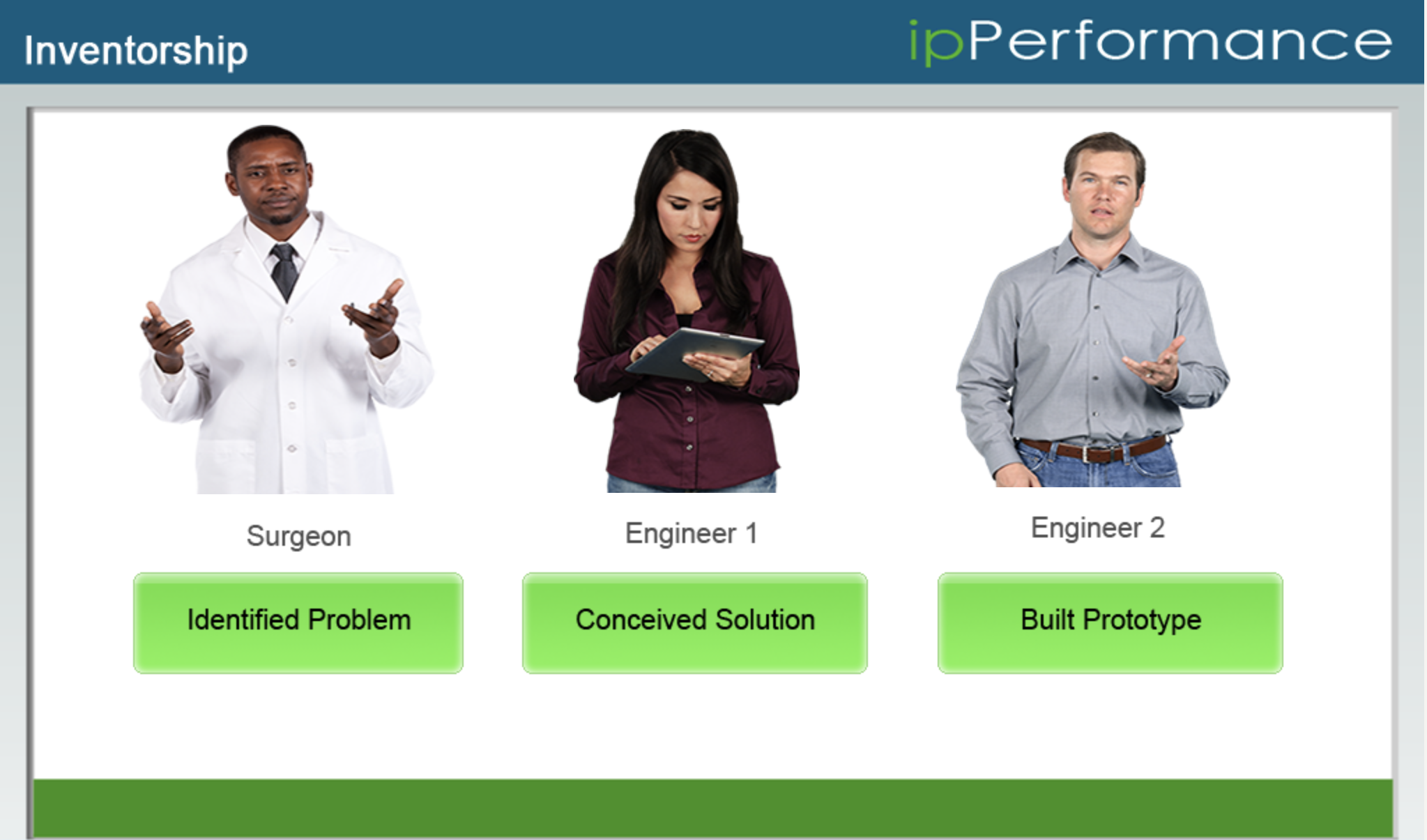
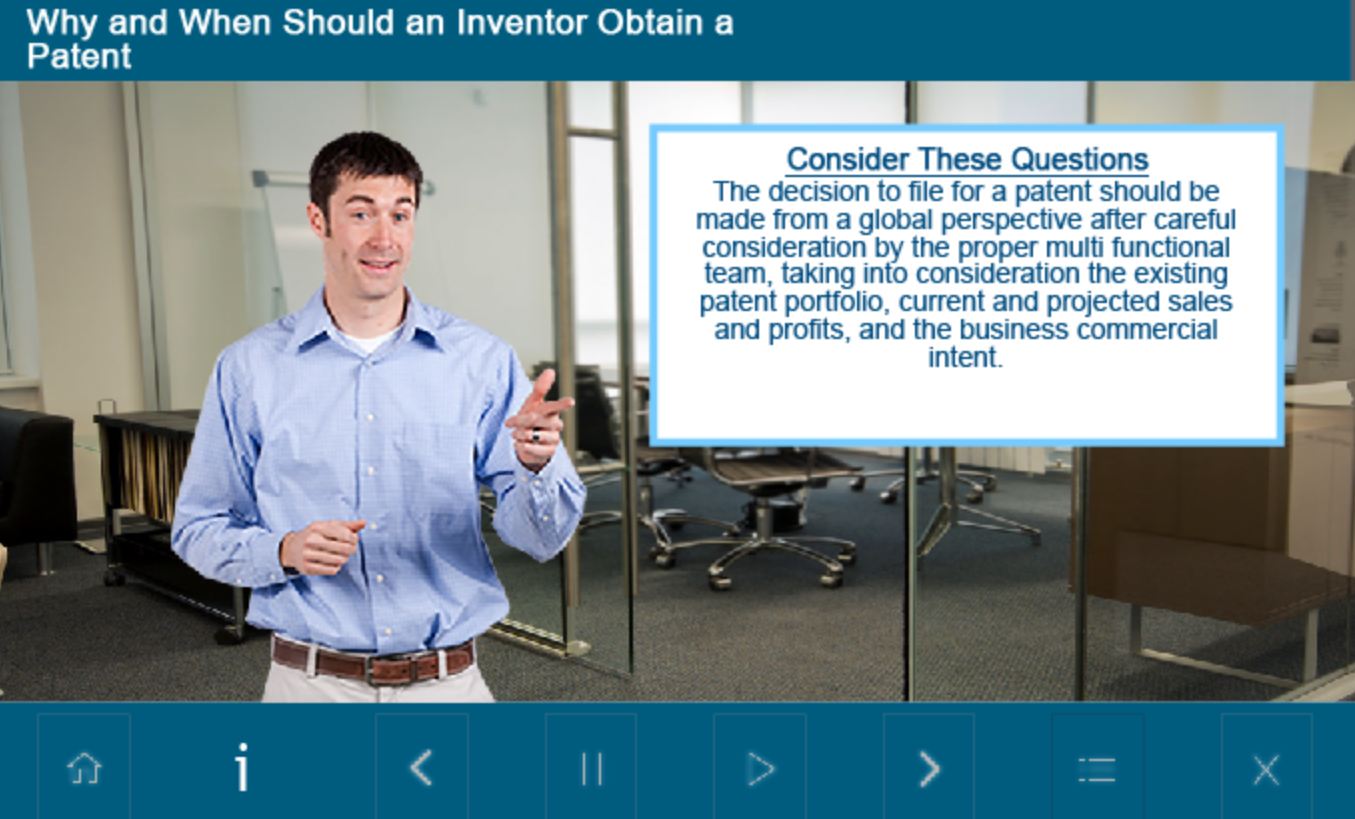
Obtaining a Patent – Why, Where, When
The Obtaining a Patent course reviews the key factors that inventors should understand before pursuing a patent. Employees will learn the alternatives to patenting an invention, how the invention is defined by the patent claims articulated in a patent application, and business considerations for protection and jurisdictions to file for protection.
Joint Venture and Intellectual Property – Release of Technology to a Joint Venture
The Joint Venture and Intellectual Property course discusses the key considerations during the life cycle of a joint venture relationship. This includes considerations both before and after the joint venture formation. The discussion is organized into five segments, which walk through each joint venture stage with a list of actions.
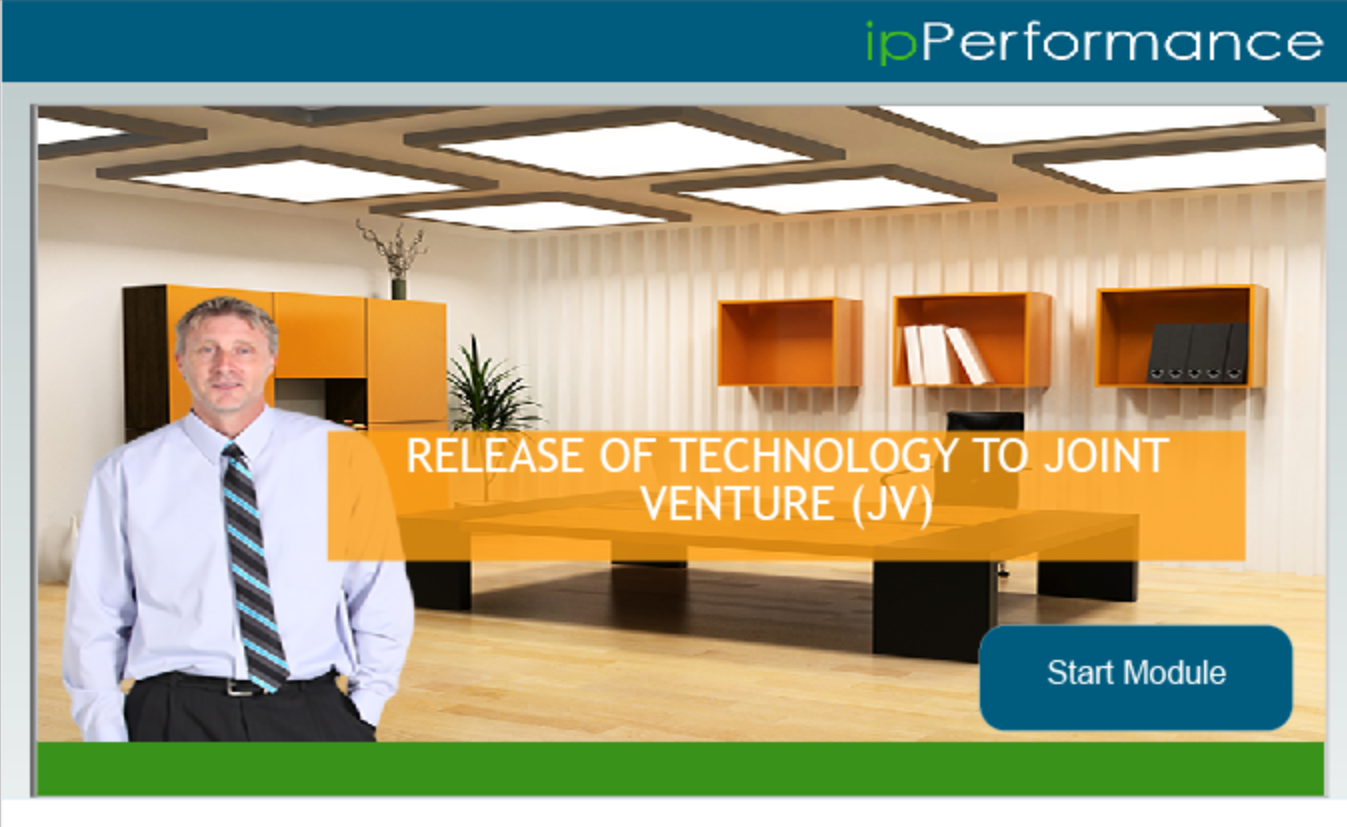
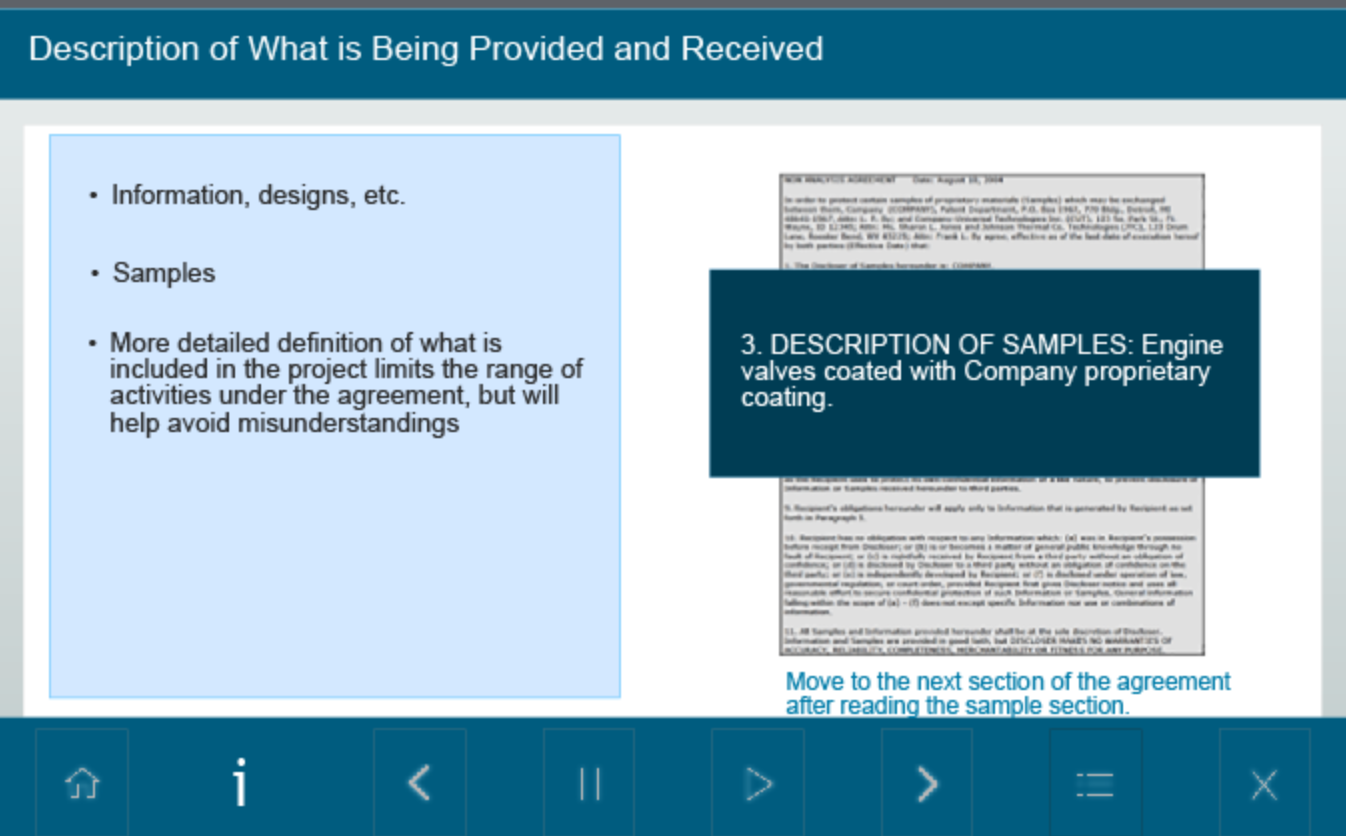
Agreement Process and Structures
Establishing agreements is a core activity in business. Managers and management in organizations will create and handle proprietary information and interact with outside organizations and people.
This proprietary information is highly valuable to the organization and must be safeguarded during discussions. Establishing an agreement before discussing it with a person outside the company is common practice, but sometimes there may be no need to share confidential and proprietary information.
The Agreement Process and Structures course is designed to give learners a basic working knowledge of why agreements are required in certain circumstances.
Technology Agreements – Structure and Content
The Technology Course course provides an overview of the 12 Principle Technology Agreements. It covers the agreement purposes and explains the key sections in each of the 12 agreements, and reviews the sections of the agreements. Also, this course reviews a standard approval process and forms used to ensure its approval.
